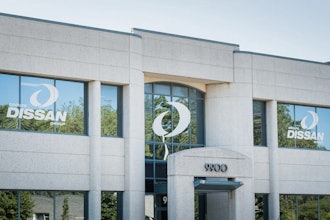GREENVILLE, S.C. (AP) — Forty-five-year-old J.P. Stathakis never thought he'd find himself in the legion of the unemployed, but there he was, a graduate of The Citadel, sucked under in the recession's tidal wave in 2009.
Now he is thankful for his job on the maintenance crew at Borg Warner in Seneca, where he operates a forklift, among other duties. It's a long way from being self-employed, but Stathakis said he has learned some valuable lessons.
"Don't be afraid to settle for something," when you're unemployed and need a job, he said. That first job on the rebound from jobless benefits might not be close to your dream job but "you do the best you can. Make the people you work for happy," Stathakis said.
The Anderson native was out of work for three months in 2009 when he lost a customer service job at Bosch Rexroth, an automotive supplier in Fountain Inn. Those were scary months, he said, but
unemployment insurance bailed him out for a little while. It meant he didn't lose his house or ruin his credit.
Stathakis, with a business degree, works as a full-time employee of HTI Employment Solutions as part of Borg Warner's maintenance department. He operates a forklift and helps recycle cardboard, operate chip hoppers and move equipment around the Seneca plant.
He considers himself lucky. Rexroth worked with Greenville-based Human Technologies, a staffing firm, and part of his severance package was outplacement services. Although he found the job based at Borg Warner, an auto supplier, through HTI, he said he didn't rely solely on the firm.
"I looked about everywhere there was," he said. "I used the newspapers, Greenville and Anderson. I look at computer sites."
He said his own efforts at finding a job didn't pan out, either because the jobs listed had been filled or interviewers considered him overqualified for the manufacturing positions he was seeking.
Stathakis didn't start his working life in manufacturing. He ran a family retail business until the economy and myriad headaches that come with business ownership persuaded him it was time to close up shop.
But when he started looking for work, the only jobs open seemed to be in manufacturing, he said. So he began assembly work at Bosch Rexroth and was promoted to customer service, which fit his experience a little more.
"It was a real change" moving from retail to manufacturing and moving from being his own boss to being an employee, he said. He was used to dealing with people and he still deals with people in his manufacturing positions.
"If you're not scared of working, the change is not a problem," he said.
When he was laid off after four years at the plant, manufacturing still seemed like a sector he should stay with.
Sujit M. CanagaRetna, senior analyst with the Council of State Governments, said manufacturing is a sector that is experiencing "fairly optimistic growth." And Stathakis chose the right sector — transportation.
"There weren't a lot of choices" in available jobs, Stathakis said, adding that he has friends from all fields still looking. "Unemployment isn't any fun."
Unemployment benefits and a small severance package helped him support his wife and two teenage children during those months.
Although "most of the unemployed want to find work," he said the benefits do allow "a lot of people to say they won't settle for just a job." So that cushion might keep them out of work a little longer.
His philosophy, however, is: "Don't be afraid to settle for something. The way the economy is means you need to find something, anything to get started."
He said he's basically starting from scratch again, at a lower salary. He said he hopes to climb the career ladder again. HTI employees can be hired for full-time positions in the facilities in which they work, giving them a career path.
His best advice to unemployed workers: Get connected with a placement agency. The people there know the companies, know what jobs are available, know which ones match your skills and can help you update skills and resumes.
"They help you get your foot in the door," he said.


















